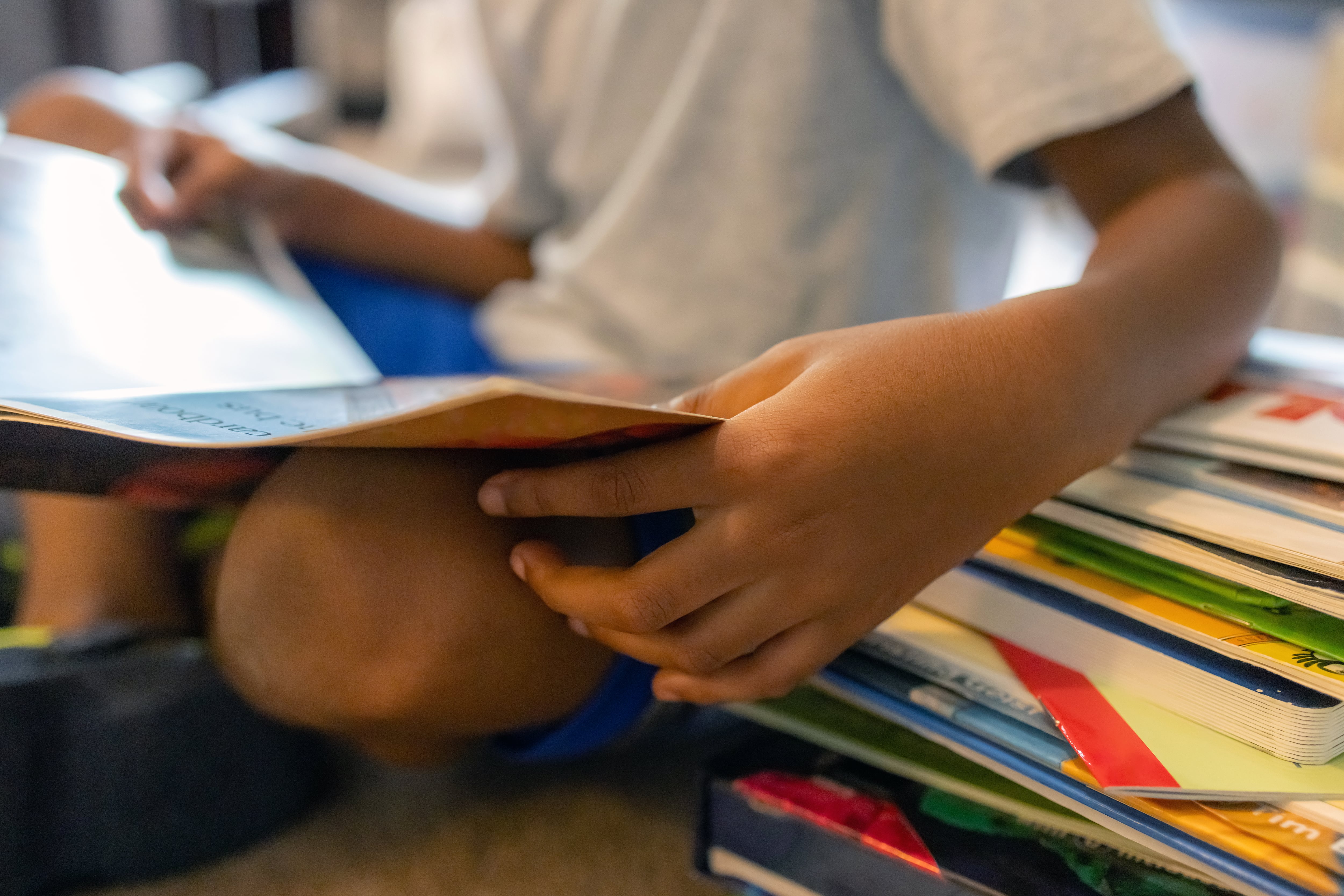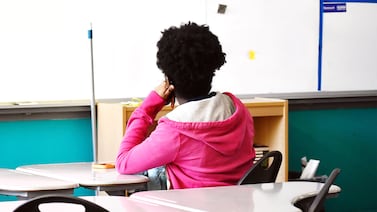Sign up for Chalkbeat Detroit’s free daily newsletter to keep up with the city’s public school system and Michigan education policy
Dyslexia bills supported by “science of reading” advocates moved Tuesday beyond all previous attempts to turn them into Michigan law.
Testimony for the two bills, which supporters say would help schools better identify and teach students with dyslexia or other reading difficulties, began in the House Education Committee Tuesday morning. The bills have already passed a vote in the Senate.
The legislation would require Michigan’s K-12 public schools and teacher preparation programs to use principles from the science of reading – a body of knowledge that emphasizes phonics in teaching kids to read, along with building vocabulary and background knowledge.
Previous iterations of the legislation had passed in the Senate in 2022, but never got to a hearing in the House Education Committee.
Sen. Jeff Irwin, a Democrat from Ann Arbor who has pushed for years for bills to address reading instruction for students with dyslexia, said the legislation would help all kids who have trouble grasping early literacy instruction.
“I’m not here to argue that phonics is the only fundamental skill,” said Irwin during the hearing. “And I’m not here to argue that it’s the only thing that we need to be teaching kids. I’m here to argue that it is a fundamental skill, and it is a thing that we must be attending to, and that by failing to attend to it, we miss a lot.”
If passed, Michigan would join at least 30 other states that have recently enacted laws requiring the science of reading in early literacy instruction.
Students’ literacy proficiency rates in the state have long been among the lowest in the nation. Michigan is currently ranked 43rd in the country for fourth grade reading.
Michigan schools currently are not required to follow a set reading curriculum and are able to select their own under local control. The state provides some guidance on using evidence-based programs. The bills would add more direction to schools on approaches teachers should use.
The science of reading philosophy has become more popular in recent years, winning out over approaches like “whole language,” which usually does not include phonics but focuses on context clues for comprehension, and “balanced literacy,” a theory that combines whole language and phonics.
A 2021 study shows the science of reading may hold promise for helping students with dyslexia in early literacy instruction, though experts say more research is needed.
Dyslexia is a common learning disability in which letters can appear to swap in and out of place. It is hereditary, lifelong, and affects from 5% to 20% of people. With early diagnosis and intervention, people with dyslexia can become average readers, research shows.
One of Irwin’s proposed bills would require districts screen all students for difficulty in decoding language and other characteristics of dyslexia. It would require interventions in the science of reading for struggling students. The interventions would be based on each students’ needs and could include specialized phonics instruction, technology, or small group breakouts.
Another bill, introduced by Sen. Dayna Polehanki, a Democrat who represents parts of Canton and Livonia, would put more stringent standards on teacher education programs. The programs would require instruction in the science of reading and best practices for teaching students with dyslexia.
During the hearing, some committee members showed support for the bills. Others questioned implementation and whether the current language was too prescriptive, saying they worried it wouldn’t leave room for teachers to use other approaches to early literacy education.
Rep. Dylan Wegela, a Democrat from Garden City and former teacher, said the science of reading has changed every 20 to 30 years. He said he worried changing the law would lock in this particular methodology, though it is evolving as new research becomes available.
“Are the sponsors at all worried about having a singular method or not allowing certain methods to be used for teaching?” he asked during the hearing. “And then also, what happens when a teacher does decide to provide the types of instruction that are abandoned by the bill?”
Irwin said his bill states that if a student is shown to be struggling with decoding or shows characteristics of dyslexia, their instruction would be based solely in the science of reading. He said that section is “very narrow” and applies to a “very narrow set of circumstances.”
Polehanki, also a former teacher, said studies show there is “a wrong way to teach kids how to read if they have characteristics of dyslexia.”
“For dyslexia, whole reading does not work,” she said.
Rep. Regina Weiss, another former teacher and a Democrat from Oak Park, said she’s heard concerns from school groups about whether implementing the rules would be feasible with staffing shortages.
Some school groups say the shortage of applicants for literacy coach openings, especially in rural schools, would make parts of the bill hard for districts to achieve. Others say the bills put more burden on teachers, who are already overworked and underpaid.
Irwin said those issues were addressed by pushing back the dates for district compliance to the 2027-28 school year.
“The other thing I’ll say is that this is going to require some investment,” Irwin added. “And I think if you look at the various House and Senate budgets right now, you’ll see some of that investment will be to meet the need here for literacy.”
Irwin said he and other cosponsors of the bills considered how the potential laws could build on current literacy initiatives the state has already invested in.
“We’ve already spent a tremendous amount of time and money on testing, we don’t necessarily need to do more, we just need to do it a little differently,” he said.
The bills aim to build a system that equips frontline teachers with the tools they need to meet students’ needs, instead of relying on hiring more specialists.
“Who knows these kids best?” he said. “The teachers who lift them every day – that’s the person who’s gonna be best equipped to see their needs and to meet them.”
The House Education Committee has not finished testimony on the bills. If the committee votes to move the legislation along, the bills would go to a vote in the House.
Hannah Dellinger covers K-12 education and state education policy for Chalkbeat Detroit. You can reach her at hdellinger@chalkbeat.org.







